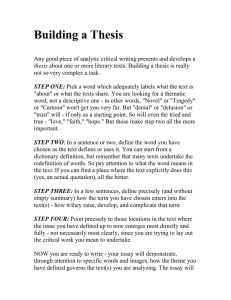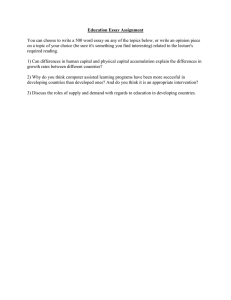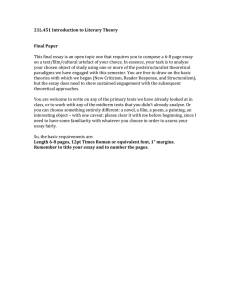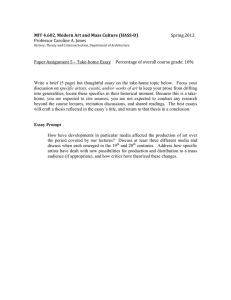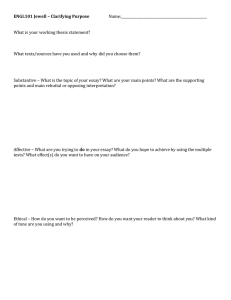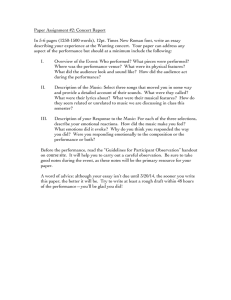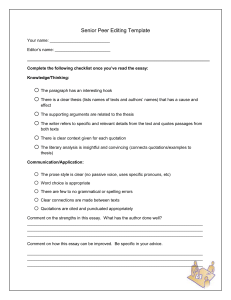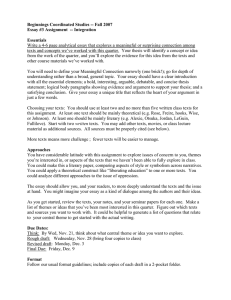Building a Thesis
advertisement
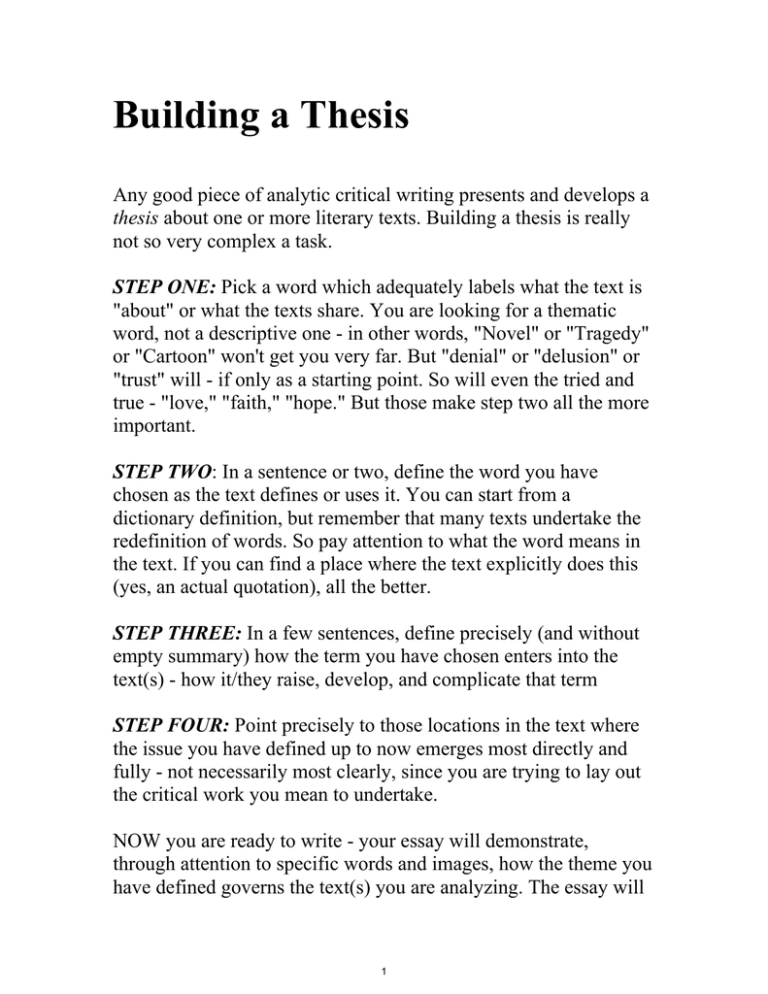
Building a Thesis Any good piece of analytic critical writing presents and develops a thesis about one or more literary texts. Building a thesis is really not so very complex a task. STEP ONE: Pick a word which adequately labels what the text is "about" or what the texts share. You are looking for a thematic word, not a descriptive one - in other words, "Novel" or "Tragedy" or "Cartoon" won't get you very far. But "denial" or "delusion" or "trust" will - if only as a starting point. So will even the tried and true - "love," "faith," "hope." But those make step two all the more important. STEP TWO: In a sentence or two, define the word you have chosen as the text defines or uses it. You can start from a dictionary definition, but remember that many texts undertake the redefinition of words. So pay attention to what the word means in the text. If you can find a place where the text explicitly does this (yes, an actual quotation), all the better. STEP THREE: In a few sentences, define precisely (and without empty summary) how the term you have chosen enters into the text(s) - how it/they raise, develop, and complicate that term STEP FOUR: Point precisely to those locations in the text where the issue you have defined up to now emerges most directly and fully - not necessarily most clearly, since you are trying to lay out the critical work you mean to undertake. NOW you are ready to write - your essay will demonstrate, through attention to specific words and images, how the theme you have defined governs the text(s) you are analyzing. The essay will 1 focus on those moments in the text you have pointed out in STEP FOUR. What you have managed to do, already, is construct a sort of rough outline of your essay. THERE IS AN EVEN SIMPLER WAY TO FORMULATE THIS PROCESS: VERBALIZATION, DEFINITION, IMPLICATION, AND LOCATION. HOW SIMPLE IS THAT? NOT EVEN A TWELVE-STEP PROGRAM. INSTEAD, UNCLE HILDA'S HANDY FOUR STEP SYSTEM TO THE WRITING OF EFFECTIVE ANALYTIC PROSE. 2 MIT OpenCourseWare http://ocw.mit.edu 21L.430 / CMS.920 Popular Narrative: Masterminds Fall 2004 For information about citing these materials or our Terms of Use, visit: http://ocw.mit.edu/terms.
